What Happens if a Rose Hair Tarantula Bites You?
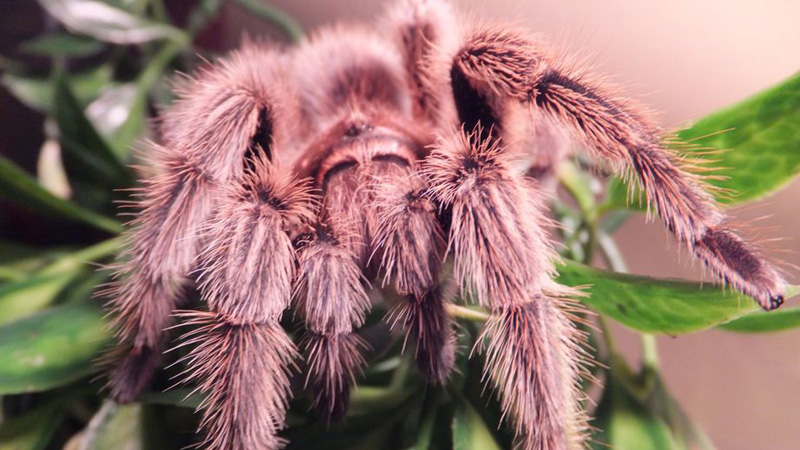
Photo by Nicky G on Pinterest
Tarantulas are fascinating creatures that have captivated the attention of many due to their unique characteristics and diverse species. Among these species is the Rose Hair Tarantula (Grammostola rosea), a popular choice for arachnid enthusiasts worldwide. While Rose Hair Tarantulas are generally known for their docile nature, it is essential to understand the potential consequences of a bite from these intriguing arachnids.
In this comprehensive article, we will delve into what happens when a Rose Hair Tarantula bites, explore the effects on humans, discuss management strategies, and provide insights on bite prevention.
Anatomy and Behavior of the Rose Hair Tarantula
Before exploring the consequences of a bite, it's crucial to understand the anatomy and behavior of the rose hair tarantula (Grammostola rosea). Native to Chile, these tarantulas are known for their beautiful rose-colored hairs and calm temperament.
Rose hair tarantulas typically display docile behavior, making them a popular choice among pet owners. They spend much of their time in burrows or hiding spots, emerging at night to hunt for insects and other small prey. When threatened, the spider may rub its hind legs and flick thousands of tiny hairs with microscopic barbs that can pierce human skin, causing swollen and itchy bumps to form and may last for several weeks.
Bite Effects on Humans
Like most tarantulas, Rose Hair Tarantulas possess venom that aids in subduing their prey. However, the venom of Rose Hair Tarantulas is considered relatively mild compared to other tarantula species. The toxicity of their venom is lower, resulting in less severe effects on humans in most cases of bites.
When a Rose Hair Tarantula bites a human, the effects are typically localized to the bite area. Common symptoms may include mild pain, redness, swelling, and itchiness around the site of the bite. These symptoms are often similar to those of insect bites or minor skin irritations and tend to subside within a few days.
Unlike some more potent tarantula species, such as the Cobalt Blue Tarantula, Rose Hair Tarantula bites are generally considered less harmful and rarely lead to significant complications. Most individuals experience only minor discomfort and do not require medical intervention for Rose Hair Tarantula bites.
Managing a Rose Hair Tarantula Bite
If you are bitten by a Rose Hair Tarantula, the following steps can help manage the bite effectively:
Wash the bite area: Clean the affected area with mild soap and warm water to prevent infection. Gently pat dry with a clean towel or cloth.
Apply a cold compress: Use a cold compress or ice pack wrapped in a cloth to reduce swelling and alleviate pain at the bite site.
Monitor for symptoms: Keep an eye on the bite area for any changes or signs of infection. If redness, swelling, or discomfort worsens, seek medical advice.
Avoid scratching: Refrain from scratching or irritating the bite area to minimize the risk of introducing bacteria and causing further complications.
Seek medical attention if necessary: While Rose Hair Tarantula bites are usually benign, if you experience significant pain, spreading redness, or allergic reactions, consult a healthcare professional for assessment and appropriate treatment.
Preventing Rose Hair Tarantula Bites
Prevention is key when it comes to minimizing the risk of Rose Hair Tarantula bites. Consider the following tips to prevent accidental bites and ensure safe interactions:
Understand tarantula behavior: Educate yourself on Rose Hair Tarantula behavior and body language to recognize signs of stress or defensive postures. Avoid handling them when they exhibit signs of agitation.
Handle with care: If you choose to handle your Rose Hair Tarantula, do so gently and confidently. Support their body and avoid sudden movements that may startle or provoke them.
Provide a suitable habitat: Create an enriched and secure enclosure for your Rose Hair Tarantula to reduce the likelihood of stress or defensive behavior.
Use caution during maintenance: Exercise caution when performing enclosure maintenance tasks, such as feeding or cleaning, to minimize the risk of accidental bites.
Educate others: Inform family members, friends, or visitors about the proper handling and care of Rose Hair Tarantulas to prevent unintentional mishaps.
Conclusion
In conclusion, a Rose Hair Tarantula bite is generally a minor and manageable occurrence that poses minimal risk to humans. Understanding the potential effects of a bite, practicing proper management techniques, and taking preventative measures can contribute to a safe and enjoyable experience with these captivating creatures.
Remember, while Rose Hair Tarantulas are typically docile and gentle creatures, it is important to approach them with respect, care, and consideration to promote a positive interaction between humans and these remarkable arachnids.
You May Also Like
 Other Pets50 Popular Names for Tarantulas (with Meaing)
Other Pets50 Popular Names for Tarantulas (with Meaing)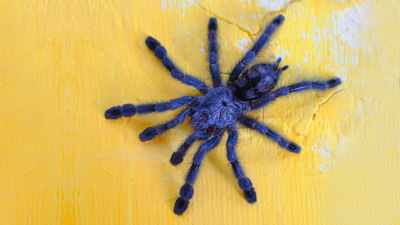 Other PetsAre Cobalt Blue Tarantulas Suitable for Beginners?
Other PetsAre Cobalt Blue Tarantulas Suitable for Beginners?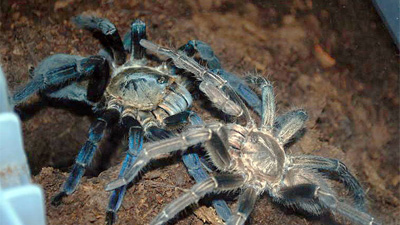 Other PetsThe Price of Cobalt Blue Tarantula in the US ($50 to $200)
Other PetsThe Price of Cobalt Blue Tarantula in the US ($50 to $200)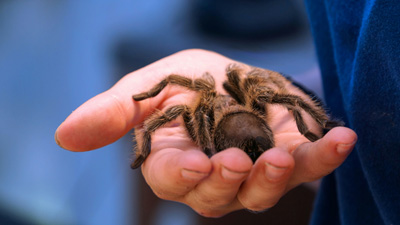 Other Pets6 Best Tarantula Species for Beginners
Other Pets6 Best Tarantula Species for Beginners Other PetsWhat Happens if a Cobalt Blue Tarantula Bites You?
Other PetsWhat Happens if a Cobalt Blue Tarantula Bites You?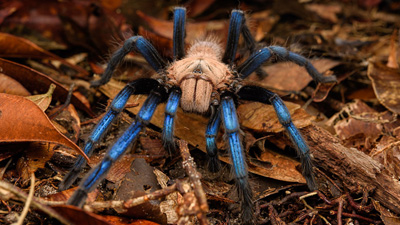 Other Pets10 FAQs About Cobalt Blue Tarantulas
Other Pets10 FAQs About Cobalt Blue Tarantulas